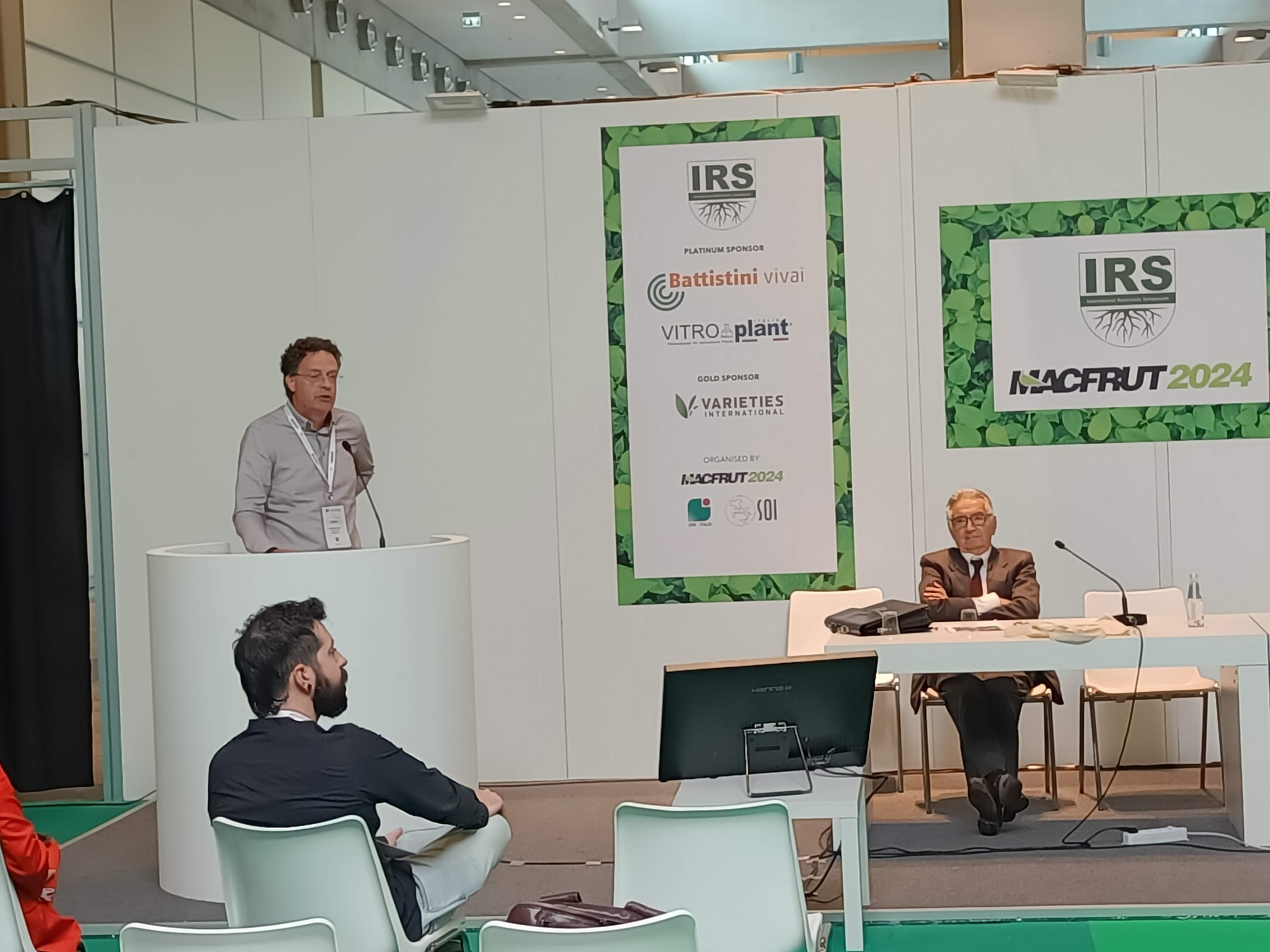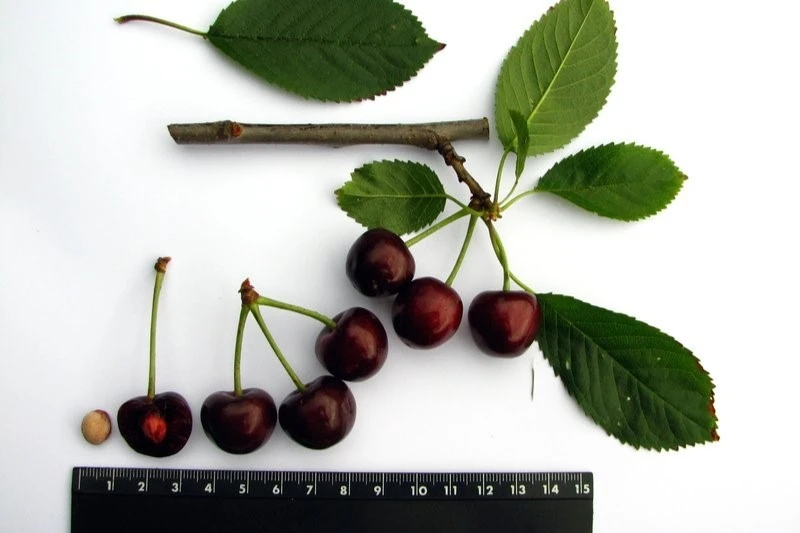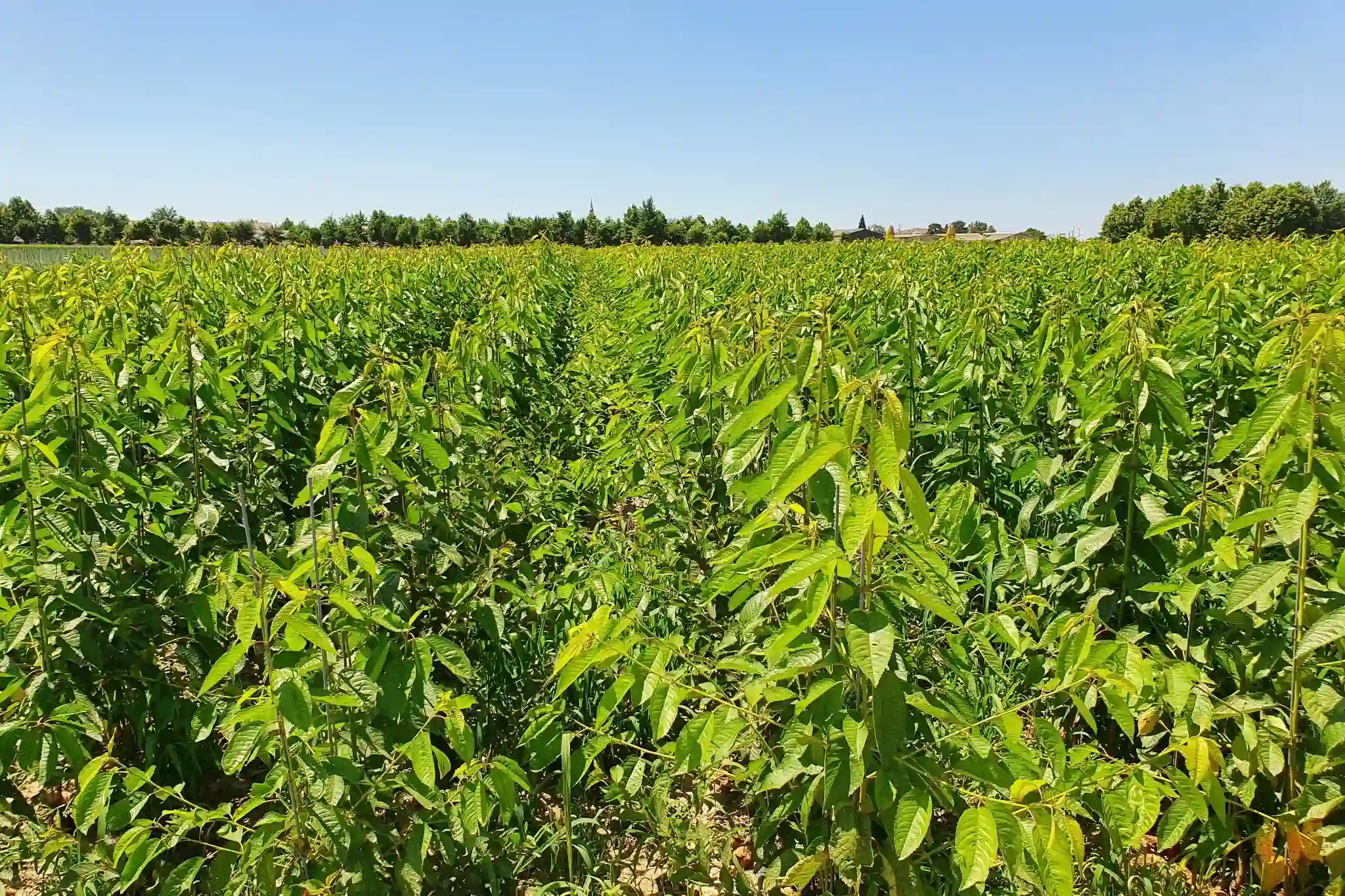Cherry Times offers its readers the reports on cherry rootstocks presented at the Macfrut 2024 International Rootstock Symposium.
Weigi rootstocks are crossings between GiSelA- and Weiroot-clones. Owner/ Licensee for Weigi-clones 1,2,3 and 4 is Peter Stoppel, Kressbronn (D). In 1965, 18 selections of Weiroot rootstocks were presented in Weihenstephan (D) by Prof. Hermann Schimmelpfeng.
These clones were then crossed in 1989 with some selections from the Gisela series obtained by Prof. Werner Gruppe in Giessen (D). This cross produced more than 400 seedlings that were planted in Weihenstephan in 1990 and evaluated and selected for 10 years together with Herman Schimmelpfeng.
Five of these complex Prunus hybrids were selected and put into trials at Peter Stoppel farm in Kressbronn am Bodensee (D). Peter Stoppel is, besides fruit grower a well-known breeder in sweet cherries and strawberries (Malwina). Peter Stoppel has selected and propagated early cherry varieties in the Prim® line and late cherry varieties called Final®, both marketed under the brand name Cerasina®. These varieties are nowadays tested and grown worldwide.
Further trials started in 2004 on 4 different locations, 4 in Germany (1x Baden, 2x Franken and 1x Thüringen) and 1 location in south of France (La Tapy). The chosen varieties were Regina and Skeena. After few years testing and some positive results, decision is taken to propagate them invitro in Italy and start making trees.
This is done in German and Dutch nurseries which make it possible to start more trials in 2013 in more in Germany, Italy, France, Spain and Ukraine. For 7 years testing is also started in Chile with Weigi® 1, Weigi® 2 and Weigi® 3. The last 4-5 years also testing the Weigi® 2, Weigi® 3 and Weigi® 4 in Canada and USA.
 Immagine 1: Sjaak Walraven.
Immagine 1: Sjaak Walraven.
Weigi®1 is recommended for central European climates, especially on fresh soils and with self-fertile varieties. It has about 10% more growth as Gisela® 5 and approximately the same growth rate as Gisela® 6 but is much less sensitive than Gisela® 6 to high summer temperatures and water stress, probably because of deep rooting.
Because of these characteristics, it has proven to be well adapted even in southern growing areas in Italy. In addition, the root system of Weigi®1 withstands heavy rainfall and waterlogging quite well. For rainy regions and replanting areas this rootstock is not recommended.
Weigi® 2 in the central European climate and on light soils shows slightly higher growth than Gisela® 5. The production yield is like that of Gisela® 5, but the fruit size is slightly larger. In very hot weather, the fruit of trees grafted on Weigi® 2 shows a tightness of maturity compared to those grafted on Gisela® 5.
It has very good compatibility with current cherry varieties. In addition, Weigi®2 tolerates fluctuations in water supply better because of its deeper root system. Weigi®2 sometimes grows poorly in the first two years, while after the second year, vegetative development is superior to Gisela® 5.
Weigi®2, in warm climate areas such as southern European or northern Chilean areas, has shown similar growth to temperate areas. In central Chile, Weigi®2 is already cultivated on a large scale, as well as in southern France, northern Italy, and Spain, where there have been good results in intensive plantations up to the eighth year after planting".
Weigi®3 and Weigi®4 are the more vigorous rootstocks which vigor are between Gisela 6 and Colt. Like Gisela and Weigi®1, Weigi®2 bud formations are very good. Both are recommended for less fertile soils or soils with limited irrigation availability, even for replanting soils it can be a good alternative.
Both rootstocks are interesting for planting systems like Spanish Bush, UFO or double leaders. If we look at variety choice, it seems that self-fertile varieties do very well on these rootstocks. Both rootstocks have excellent compatibility with all current cherry varieties. Grafting union is smooth and generally no root suckers.
No negative effect seen on flower period or harvest date. Excellent anchorage and stability of the trees. Weigi®3 and Weigi®4 are recommend in central-north Europe for replanting with limited access to water and in hot and dry climates these rootstocks are worth to plant on commercial base.
Download the full report here
Download the presentation here
Sjaak Walraven
Boomkwekerij Fleuren, NL
verkoop@fleuren.net
Cherry Times - All rights reserved











